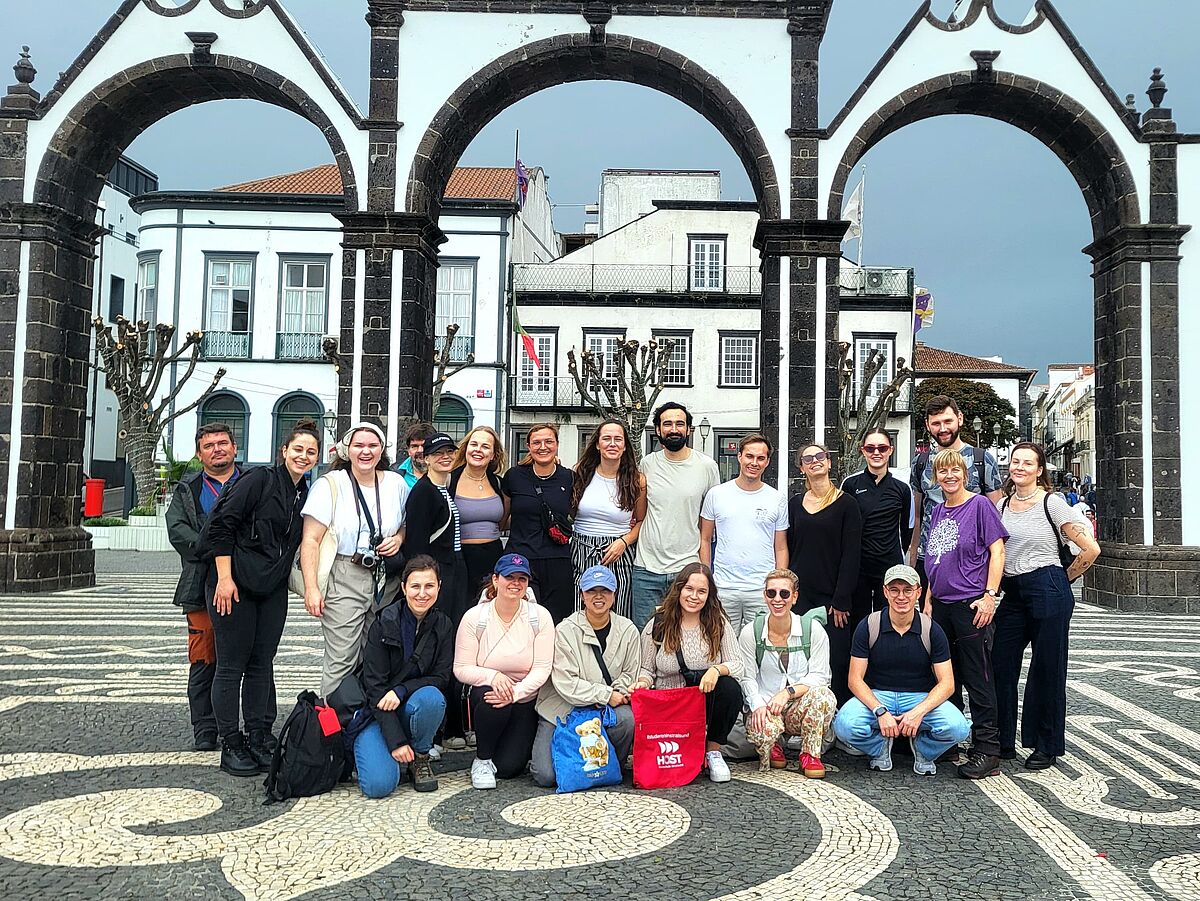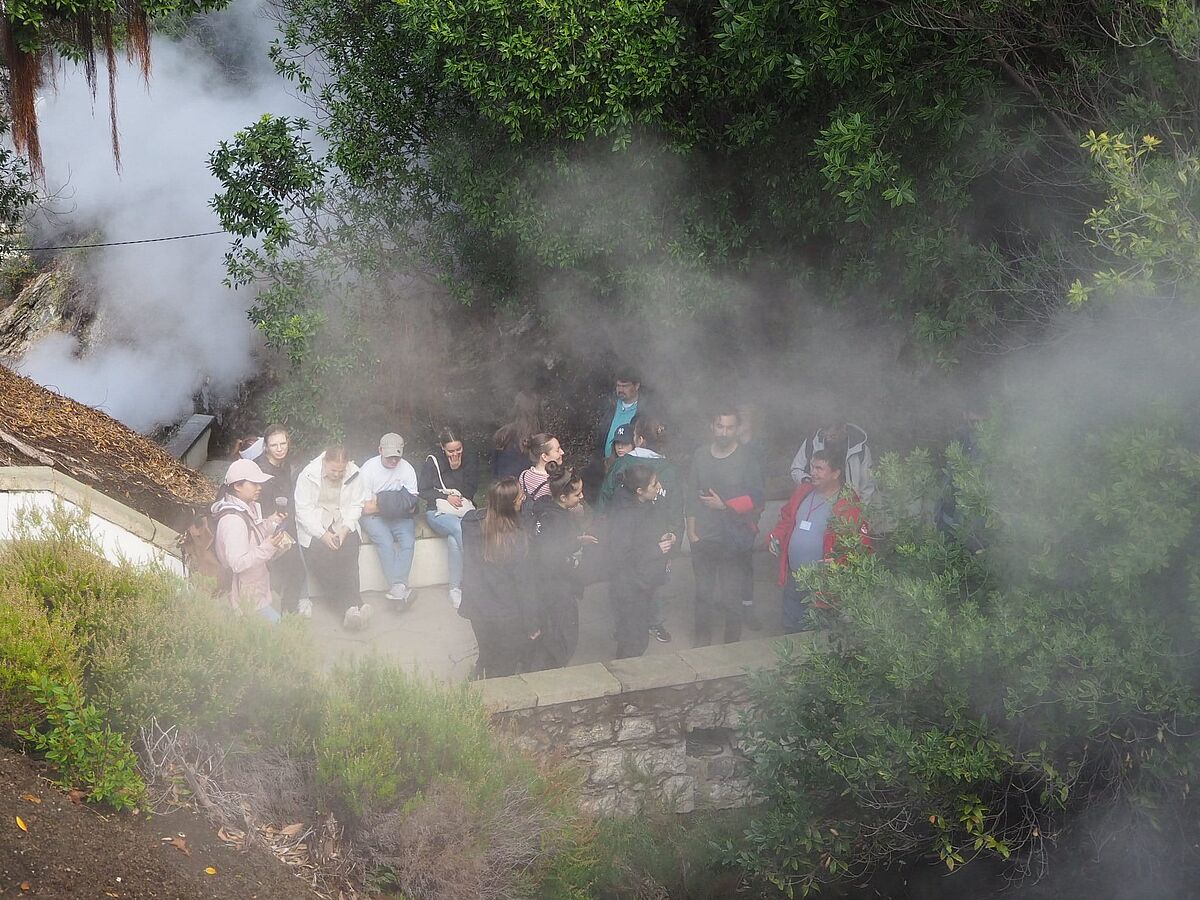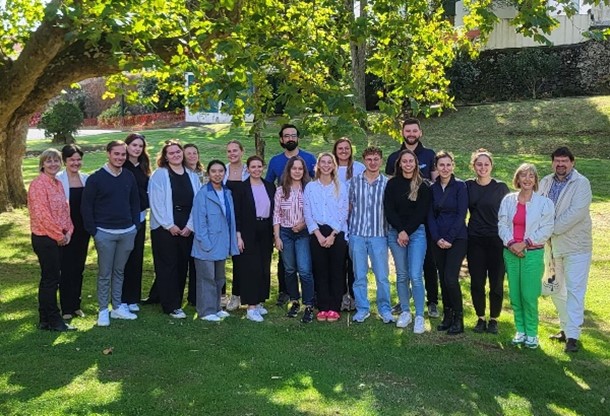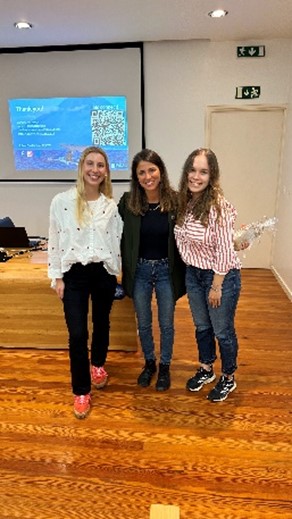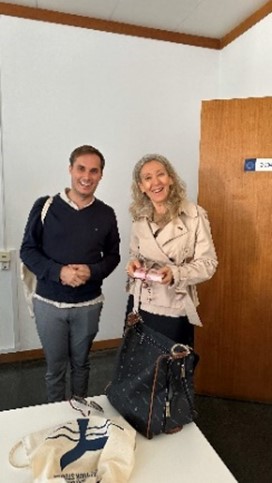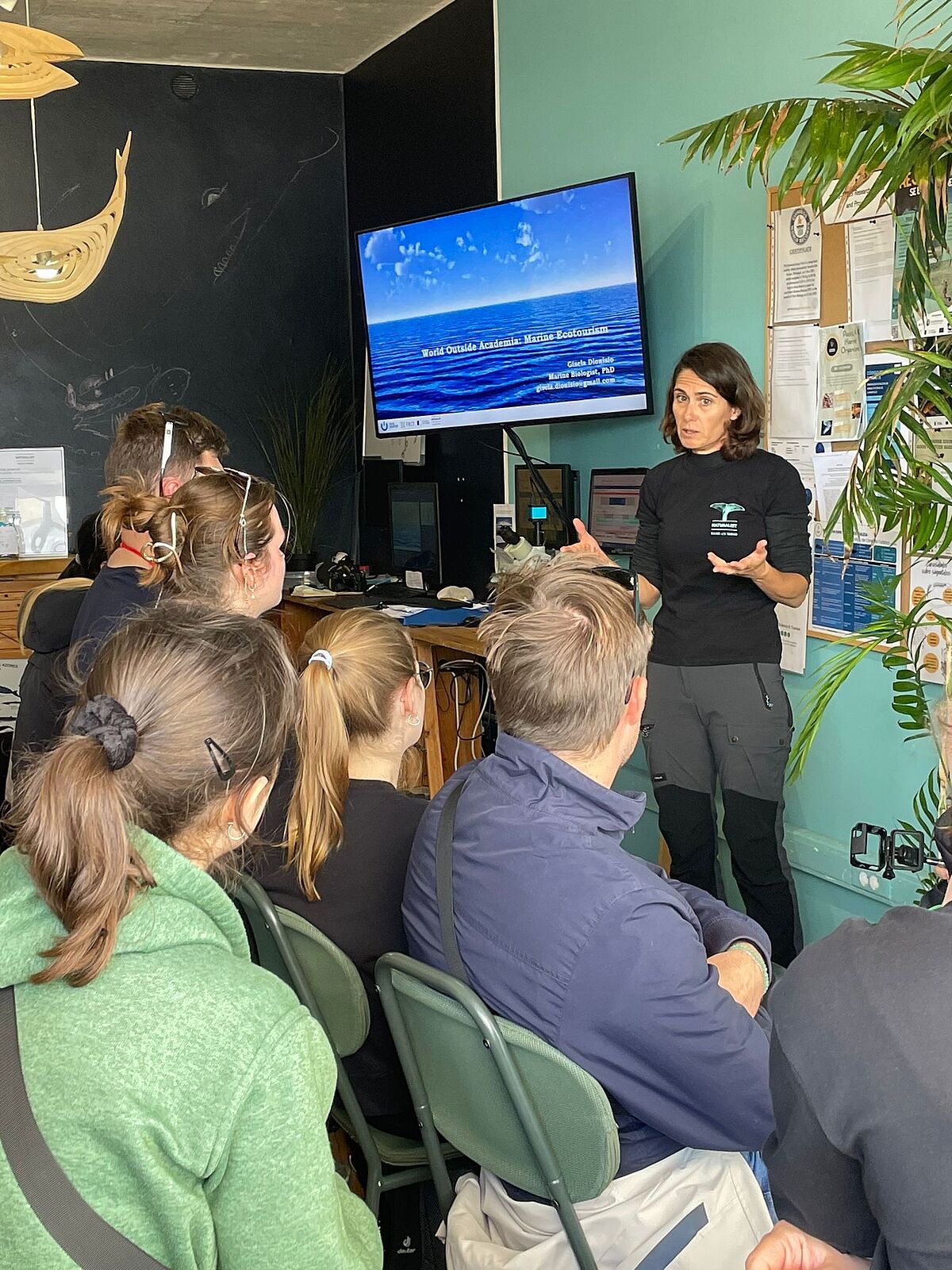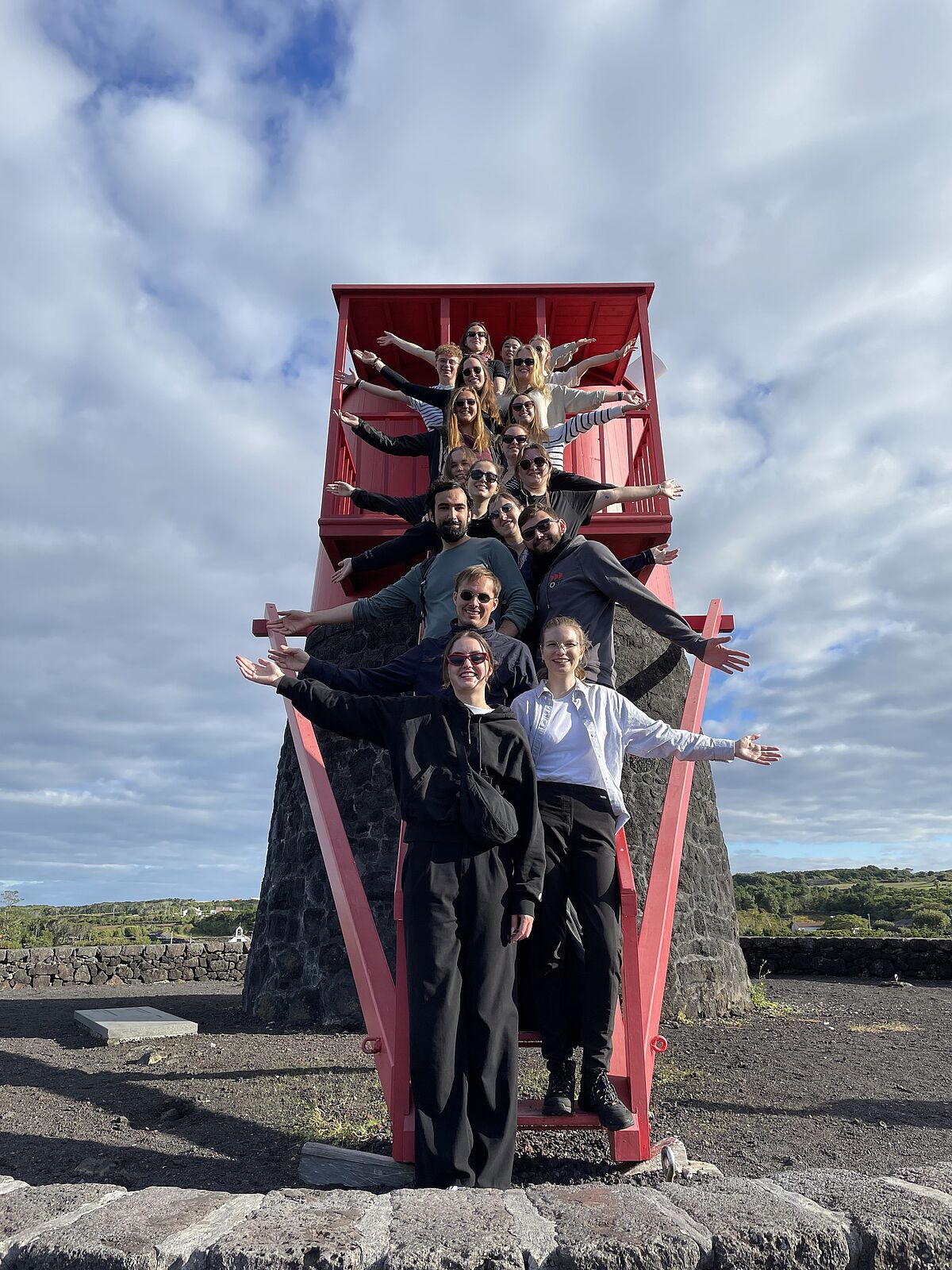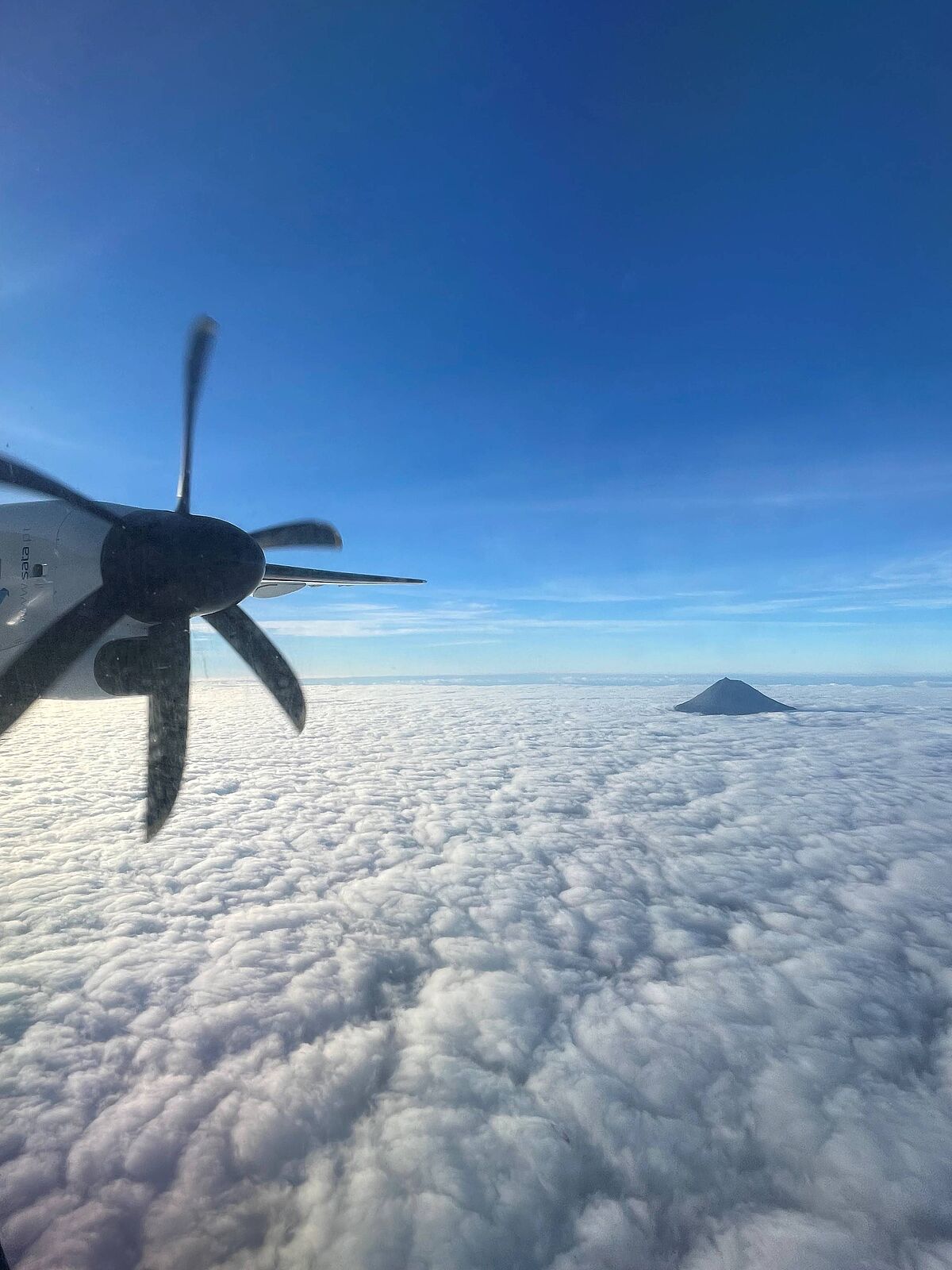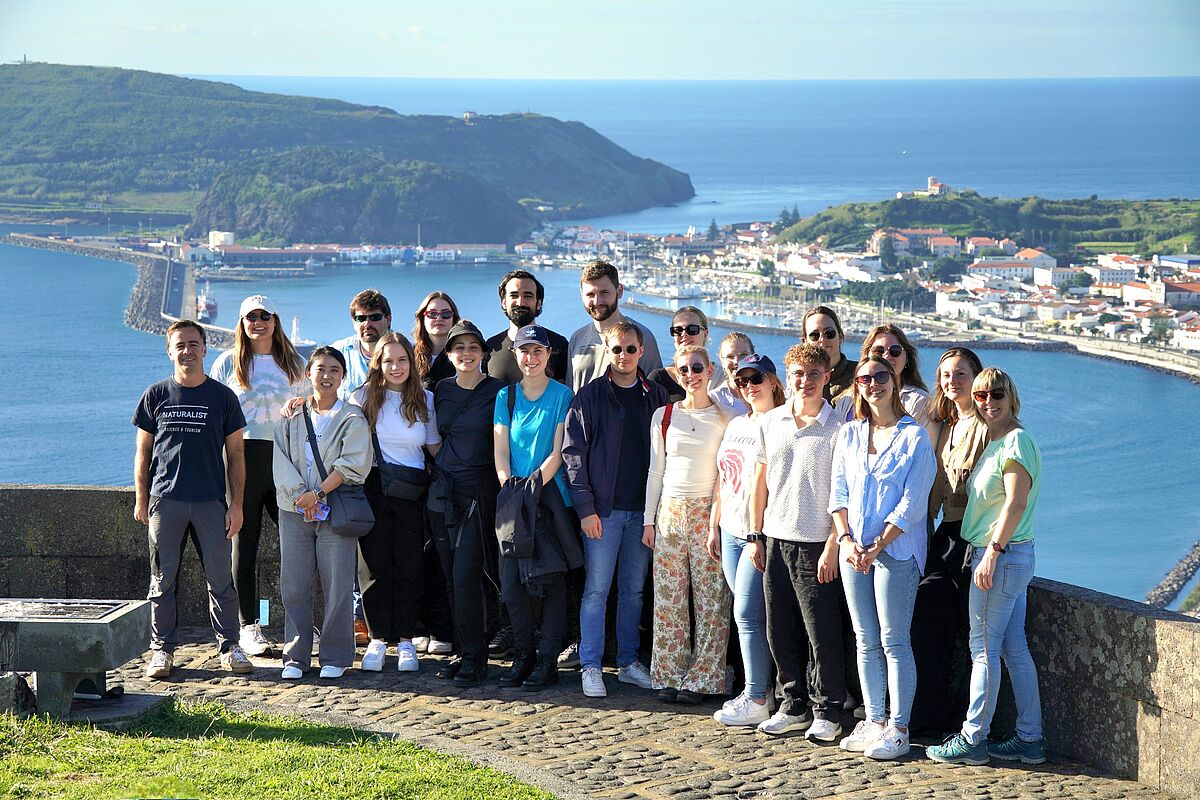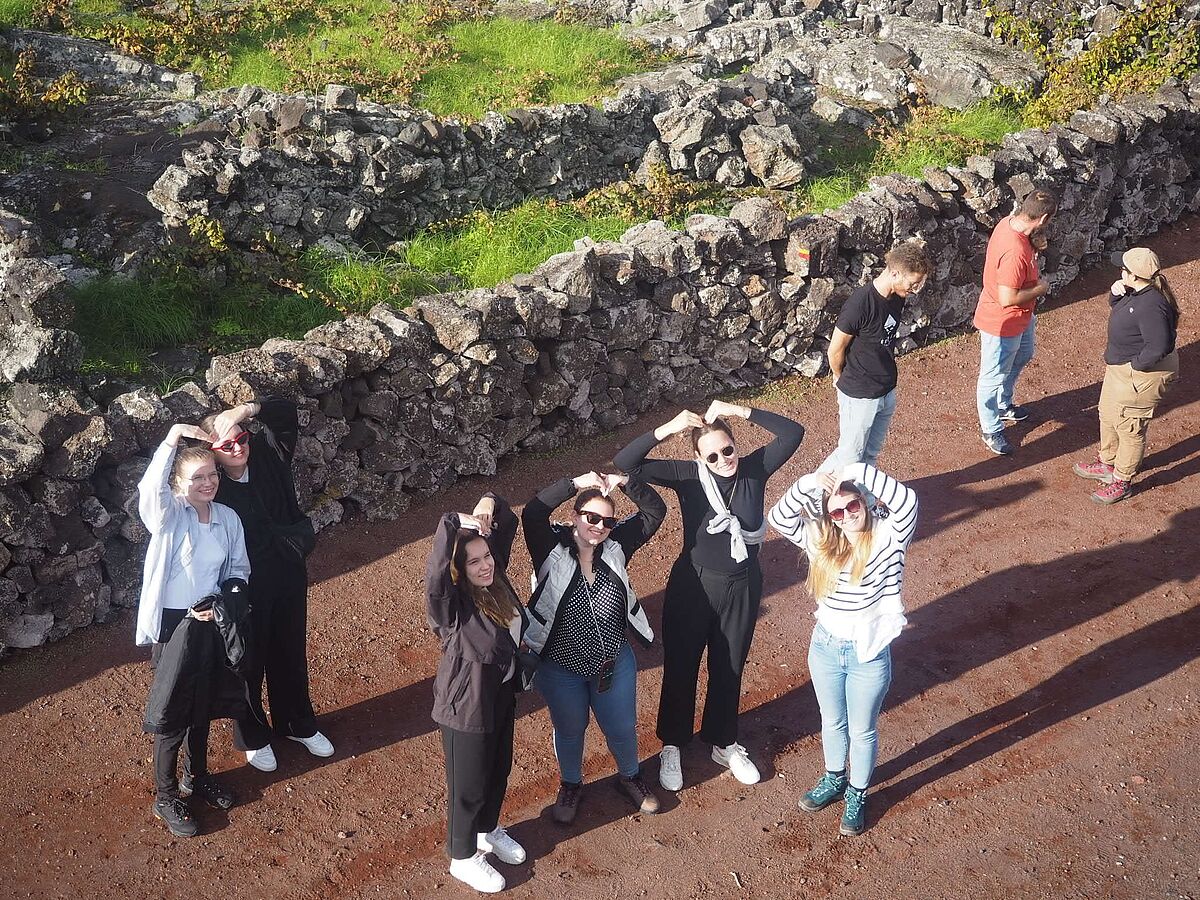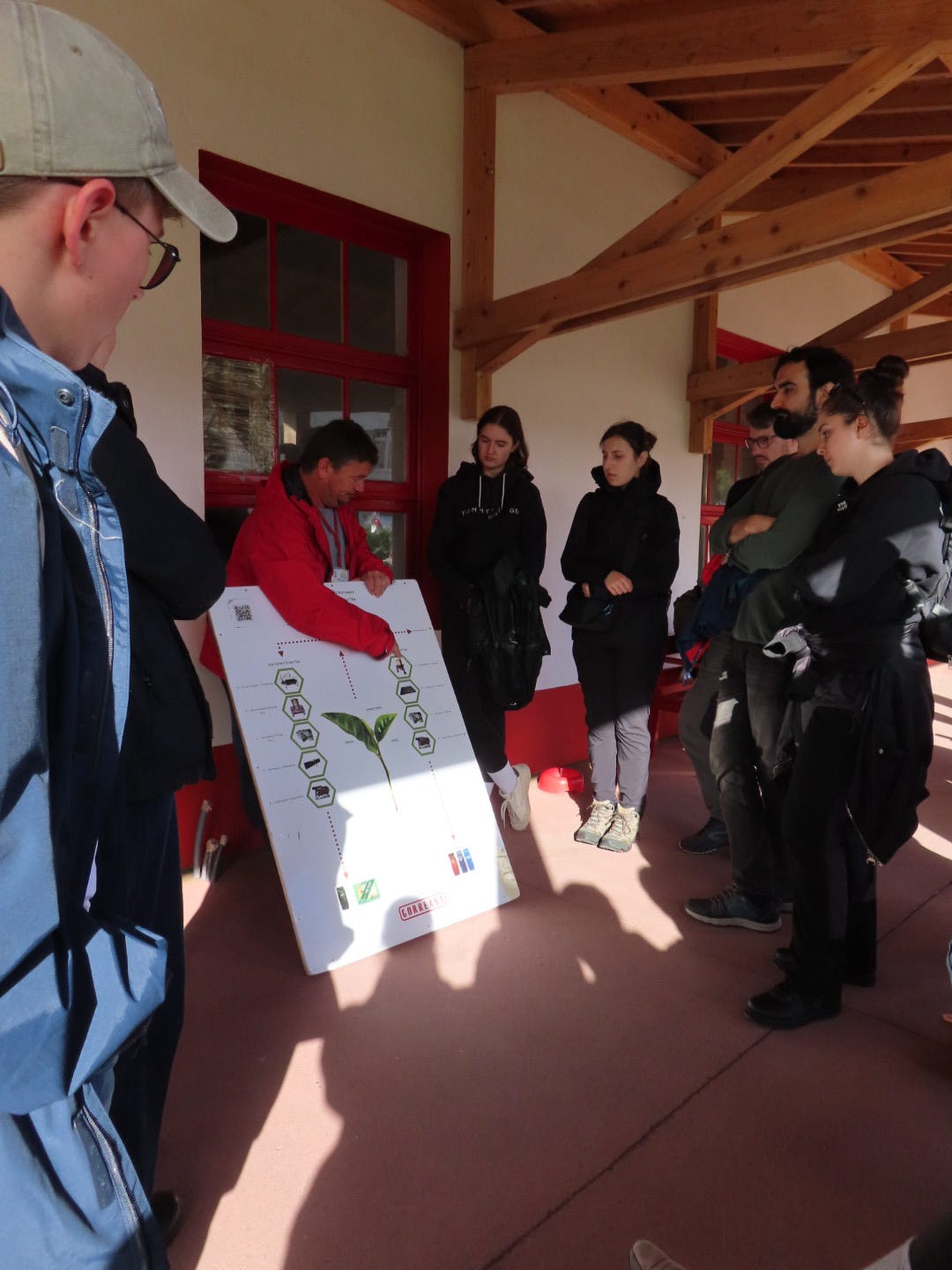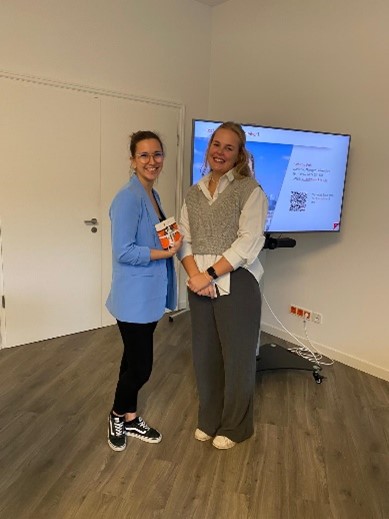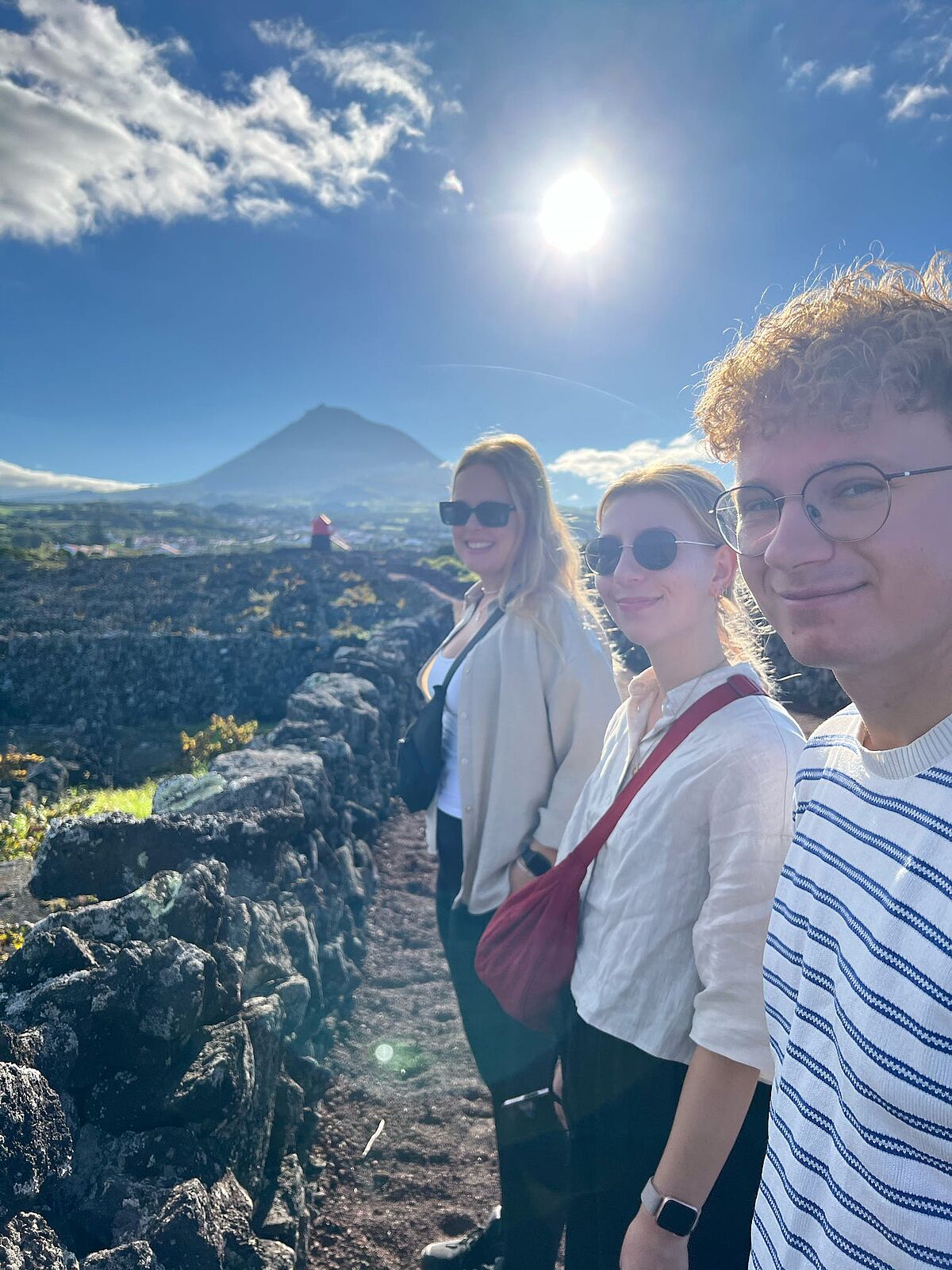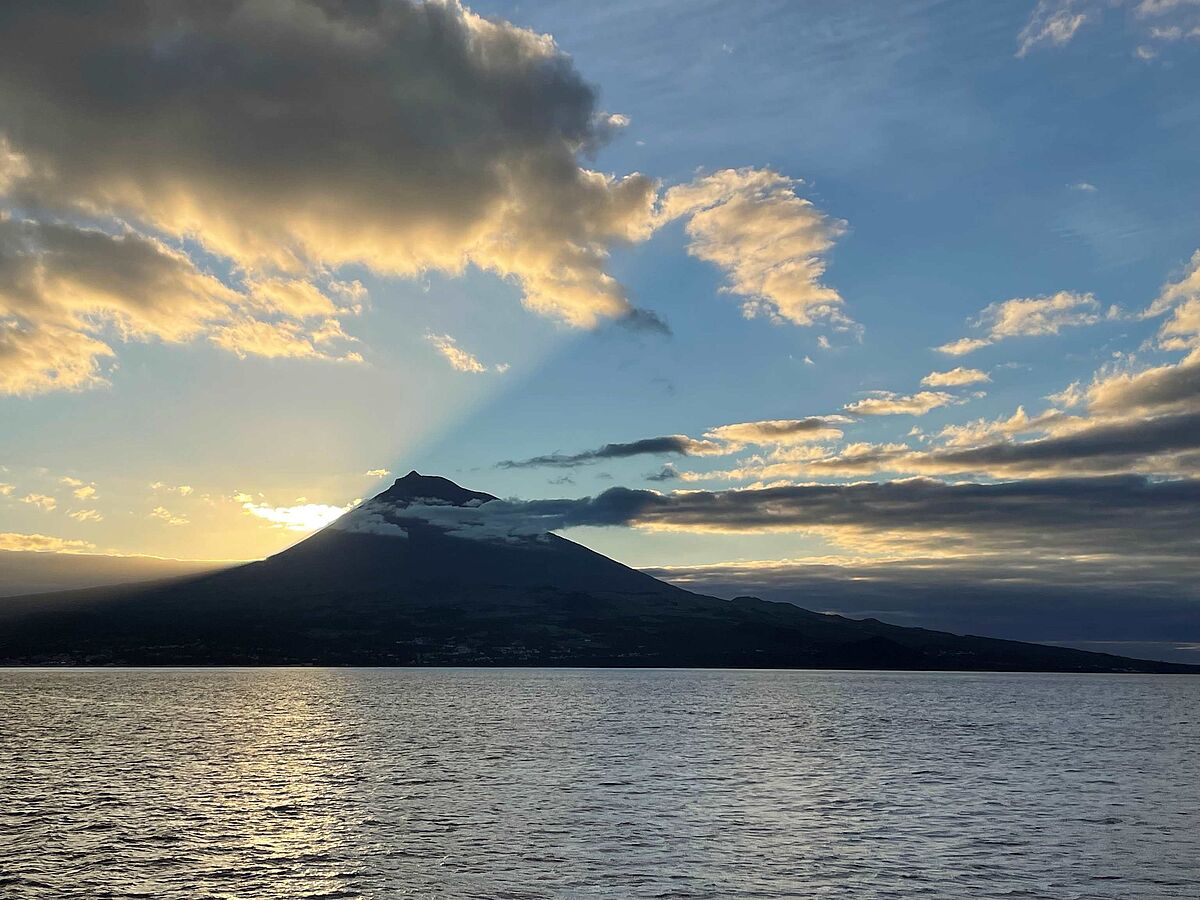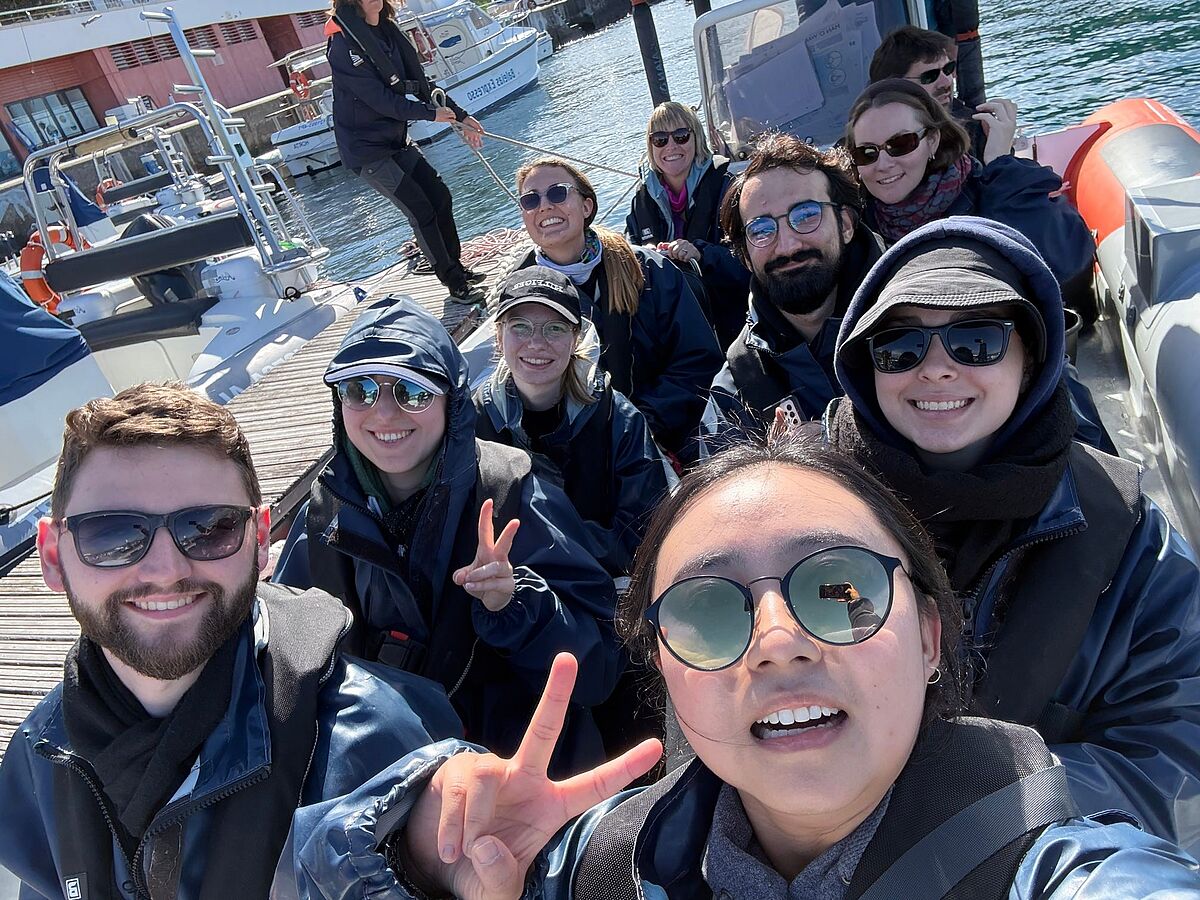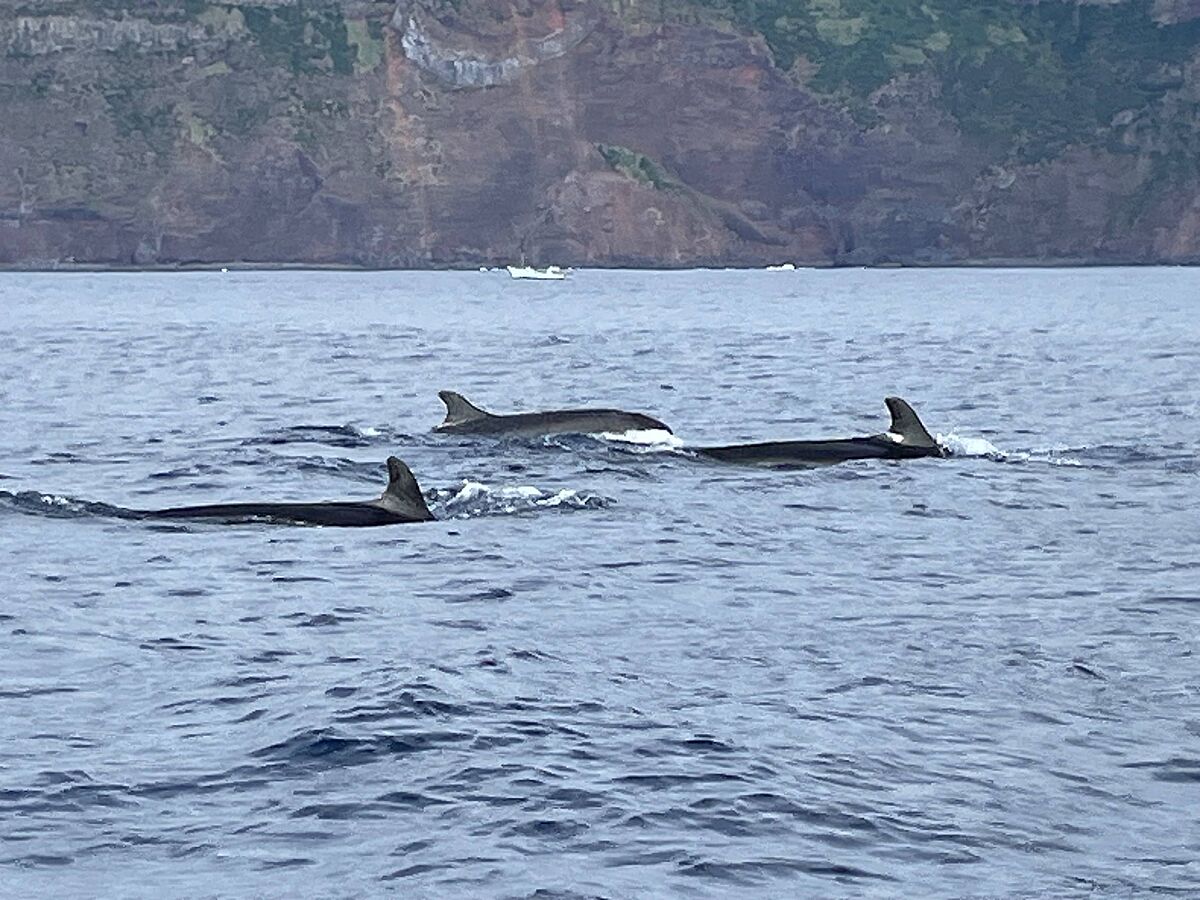Excursion: Azores, October 2024
Tourism Development Studies
Sustainable Tourism and Practical Insights for TDS master’s Students
From October 22 to 30, 2024, 18 master's students from the Tourism Development Strategies (TDS) program at the Hochschule Stralsund (HOST) embarked on a study trip to the Azores (watch our video about the excursion and download our TDS brochure), an archipelago renowned for its commitment to sustainable tourism development. This journey offered us a unique opportunity to explore the region’s tourism challenges and opportunities in a balanced mix of theoretical knowledge and practical experience.
Exploring Sao Miguel (Day 1 to 4)
We traveled by train to Frankfurt and stayed overnight. During this stop, we had the chance to learn more about Frankfurt’s role as an economic and congress hub, with a presentation from the Frankfurt Tourism & Congress GmbH. After a lecture on event acquisition by Frankfurt’s Tourism GmbH, we flew to Ponta Delgada via Lisbon. Upon arrival at Casa do Contador, we were welcomed with a buffet of traditional Azorean specialties, offering us a first taste of the region’s vibrant culinary scene.The third day was dedicated to discovering Ponta Delgada, the largest city on São Miguel Island. A guided city tour introduced us to the historical and cultural highlights, followed by a relaxing visit to the local hot springs. Our group also ventured to Lagoa dos Furnas, where we were introduced to the volcanic landscape and the unique local flora and fauna. A traditional Cozido das Furnas, a dish cooked in the ground, highlighted the island’s distinct cooking traditions. The day continued with a visit to the botanical gardens and the unique Cha Gorreana tea plantation, where we could taste the variety of black and green tea and learned about the history and the traditional methods applied.
A traditional Cozido das Furnas, a dish cooked in the ground, highlighted the island’s distinct cooking traditions. The day continued with a visit to the botanical gardens and the unique Cha Gorreana tea plantation, where we could taste the variety of black and green tea and learned about the history and the traditional methods applied.


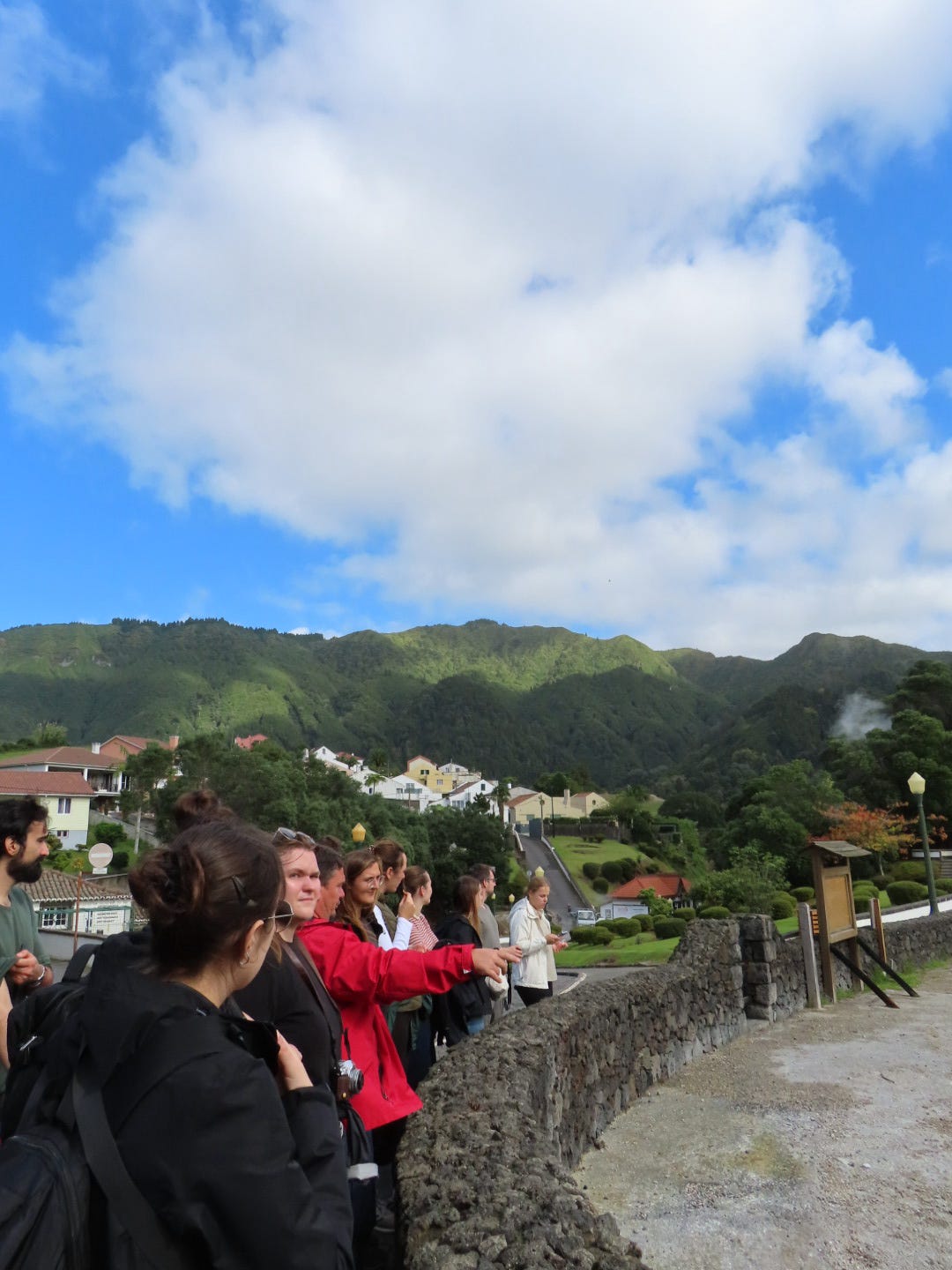
Sustainable Tourism Partnerships (Day 5)
Our student group gained valuable insights through meetings and discussions with local organizations like Sustain Azores, which focuses on sustainable development and environmental protection on the islands. This organization works to raise environmental awareness and improve the quality of life in the local communities.
Additionally, the group met with Carolina Mendonça, the coordinator of the Azores’ Destination Management Organization (DMO), who shared how sustainable tourism is promoted at the administrative level and how mobility concepts are being developed. The DMO works closely with local stakeholders to improve the tourism offering while preserving the region’s natural and cultural resources. Next to Grupo ANC, we also visited the Universidade dos Açores, a partner university of HOST, which is a member of the European university alliance EUNICoast. This offers us new possibilities for studying abroad as part of the Erasmus program.
Throughout all the discussions, we observed the deep connection the local people have with their environment. The conservation of natural resources, the establishment of protected areas, visitor management, and a gradual increase in tourism numbers under strict sustainability criteria were key takeaways that we brought back with us. The trip provided us with a comprehensive perspective on the sustainable tourism strategies implemented in the Azores. In particular, we had the chance to interact with local businesses, sustainability organizations, and university programs. These interactions helped us understand the real-world challenges of promoting tourism while protecting natural resources.
Volcanoes and Whale Watching between Faial & Pico (Day 6 to 8)
The sixth day took us to Horta on Faial Island for a whale-watching tour led by a marine biologist from the company Naturalist, a Portuguese startup focused on nature tourism and the monitoring of biodiversity on the Azores. Before we went out on the water to spot whales, we first got to know the importance of marine conservation in a meeting withNaturalist. This combination of tourism and scientific research is an excellent example of sustainable offers. It allowed us to observe short-finned pilot whales and sperm whales in their natural habitat, while also learning about strict regulations, e.g. limited licenses or the use of small boats to guarantee sustainable operations.
The Faial tour included a visit to the Ponta dos Capelinhos Volcano Lighthouse, offering breathtaking views of the island’s volcanic landscape. In general, volcanoes and volcanic landscapes characterize the image of the Azores. They are still active today, because three continental plates are pressing against each other on the seabed. The most recent volcanic eruption on the island of Faial was just over 50 years ago. For us it was fascinating to learn how volcanoes and the nearby region benefit from this in terms of tourism today.
The day ended with a swim at sunset, providing a stunning reminder of the natural beauty of the Azores.
The following day was dedicated to visiting a 3rd island of Azores archipelago, Pico Island. After a meeting with the Tour Operator Tripix, the group participated in caving activities and explored stunning viewpoints. The day also included a wine-tasting session, followed by a ferry ride back to Faial and a visit to the famous Peter Café Sport, a local favorite where the group shared their experiences and relaxed.
Return and Reflection: A Valuable Educational Experience (Day 9 to 10)
The study trip concluded with a return flight to Frankfurt. Overall, the study trip to the Azores was an enriching experience that offered the students valuable insights into the challenges and opportunities of sustainable tourism. The combination of academic knowledge and hands-on experiences has equipped us with practical tools and perspectives we can apply in our future careers, helping us become key players in the development of sustainable tourism worldwide.
Lion
TDS Master student, 1st semester
Exkursionen sind ein fester Bestandteil unseres Master-Studiengangs Tourism Development Strategies. Die Philosophie dahinter ist eine stetige und nachhaltige Verzahnung von Theorie und Praxis. Aber nicht nur eine Verbesserung der Fachkompetenz und Angebote zur Förderung des Netzwerkes unserer Studierenden werden mit einer Studienreise angestrebt, ebenso ist es eine Erweiterung des eigenen Horizontes, da oftmals Begegnungen mit ganz anderen Kulturkreisen erlebt werden.
Die stetige Interaktion mit etwa 20 Studierenden über einen Zeitraum von 10 Tagen fördert die Teamfähigkeit aller Teilnehmer. Weiterhin werden kommunikative, soziale Kompetenzen und nicht zuletzt die eigene Persönlichkeit gestärkt.
Erfahren Sie hier mehr über den Master-Studiengang Tourism Development Strategies an der Hochschule Stralsund.

